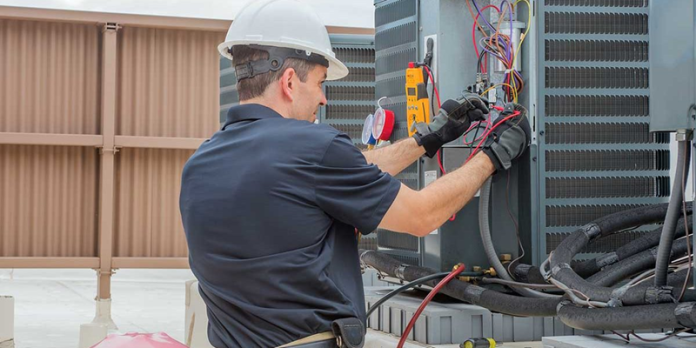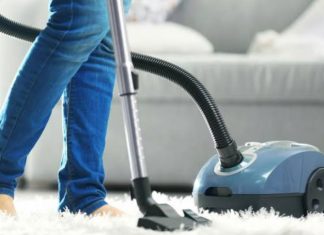When winter hits Idaho Falls, a functioning HVAC system becomes a must to keep your home warm and comfortable. If your HVAC system starts acting up, knowing a few basic fixes can help you stay warm and save on repair costs. Here are some tips to troubleshoot and fix common HVAC issues in the winter months.
1. Check the Thermostat
A simple thermostat issue can sometimes lead to significant discomfort. If your HVAC system isn’t heating your home properly:
- Check the settings: Make sure your thermostat is set to “Heat” rather than “Cool” or “Auto.”
- Adjust the temperature: Sometimes, setting it a few degrees higher can activate the system and allow you to determine if it’s responding.
- Replace batteries: If your thermostat has batteries, a fresh set may be all it needs to function properly.
Sometimes a simple thermostat adjustment can save you a service call and get your HVAC system back on track.
2. Inspect and Change the Air Filters
A clogged air filter restricts airflow, which can prevent your system from heating effectively. Dust, pet hair, and other particles can accumulate, especially when the system is working overtime in cold weather.
- Inspect the filter monthly and replace it if it appears dirty. A new filter can significantly improve airflow and efficiency.
- Use high-quality filters that trap more particles to ensure your system isn’t overworking to heat your home.
Replacing your air filter is one of the easiest DIY HVAC fixes and can also help extend the lifespan of your system.
3. Clear the Area Around the Outdoor Unit
Many Idaho Falls HVAC systems have an outdoor condenser unit, which should be free of obstructions. Winter conditions like snow, ice, and fallen leaves can accumulate around the unit, reducing efficiency.
- Remove any debris or snow from around the unit to maintain proper airflow.
- Check for ice buildup: If you see ice forming on the unit, it might indicate a problem with the defrost cycle or refrigerant levels, requiring professional service.
While this step may seem minor, a clear outdoor unit helps your system run more smoothly in winter conditions.
4. Inspect the Ductwork for Leaks
Leaky ductwork can allow warm air to escape, making your HVAC work harder than necessary. This could lead to higher energy bills and uneven heating.
- Look for visible gaps or disconnected sections in your ductwork.
- Seal small leaks with aluminum foil tape or mastic sealant to keep warm air inside the ducts.
- Consider a professional inspection if your home consistently struggles to maintain heat, as poorly insulated ducts may also contribute to heat loss.
5. Check the Circuit Breaker
In some cases, HVAC problems can stem from a simple power issue. Winter storms or high usage can cause the circuit breaker to trip, interrupting your HVAC system’s power supply.
- Locate your electrical panel and check if the HVAC breaker has tripped.
- Reset the breaker if it’s in the “off” position, and check if the system starts working again.
If your breaker continues to trip, there may be an underlying electrical issue that requires an HVAC technician.
6. Unblock Vents and Registers
Blocked vents can cause uneven heating and unnecessary strain on your HVAC system. Make sure that all vents and registers are open and free from obstructions like furniture or drapes.
- Inspect each room’s vents to ensure they’re fully open.
- Move any furniture or household items away from vents to ensure proper airflow throughout your home.
Proper airflow will help keep every room warm and prevent your HVAC system from overworking.
7. Clean the Evaporator and Condenser Coils
Over time, dirt and debris can accumulate on the evaporator and condenser coils, which impacts efficiency. While you may not need to clean these every month, a seasonal cleaning can improve performance, especially if your HVAC system has been working hard during the colder months.
- Turn off the power to the unit before starting.
- Use a soft brush or vacuum to carefully clean dust from the coils.
- Consider a coil cleaning solution for a deeper clean, but avoid harsh chemicals that may damage the system.
Regular maintenance of your coils can keep your HVAC running smoothly and extend its lifespan.
When to Call a Professional
If you’ve tried these fixes and your HVAC system is still not heating your home adequately, it might be time to call a professional HVAC technician in Idaho Falls. Common issues like refrigerant leaks, faulty wiring, or a broken blower motor are best handled by experts who can safely diagnose and repair complex issues.
Final Thoughts
A properly functioning HVAC system is essential for staying comfortable during the Idaho Falls winter. Regular maintenance and a few troubleshooting steps can keep your system running efficiently. Remember, a clean filter, clear ducts, and free airflow are your HVAC system’s best friends. However, if you encounter persistent issues or major malfunctions, reaching out to a professional can ensure your system gets the care it needs to keep your home warm and cozy all winter long.












